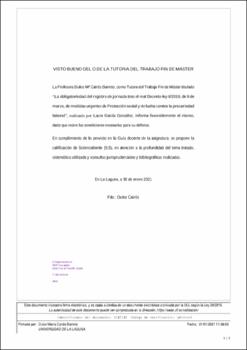La obligatoriedad del registro de jornada tras el real Decreto-Ley 8/2019, de 8 de marzo, de medidas urgentes de Protección social y de lucha contra la precariedad laboral.
Fecha
2021Resumen
El 12 de marzo de 2019 se publicó en el Boletín Oficial del Estado el Real Decreto-Ley
8/2019, de 8 de marzo, de medidas urgentes de protección social y de lucha contra la
precariedad laboral en la jornada de trabajo, con el objetivo de reducir las desigualdades
sociales que aún subsisten en la sociedad española. Supuso una gran controversia alcanzar la
obligación de registro de jornada donde, finalmente el Gobierno, por vía de urgencia, la
impuso con carácter general a todas las empresas. Las reformas más significativas del RDL
8/2019 giran en torno a establecer medidas de protección social, fomentar el empleo
indefinido y luchar contra la precariedad laboral.
La apuesta no fue sencilla, ya que se trataba de reformar los tiempos de trabajo y de conseguir
la flexibilización y conciliación de la vida personal y laboral, así como de limitar los abusos
cometidos por los empresarios, consiguiendo una garantía del derecho a la seguridad y salud
en el trabajo. On March 12, 2019, Royal Decree-Law 8/2019, of March 8, on urgent measures of social
protection and the fight against job insecurity in the working day was published in the Official
State Gazette, with the aim of to reduce the social inequalities that still exist in Spanish
society. It was a great controversy to reach the obligation to register working hours where,
finally, the Government, as a matter of urgency, imposed it generally on all companies. The
most significant reforms of RDL 8/2019 revolve around establishing social protection
measures, promoting permanent employment and fighting against job insecurity.
The bet was not easy since it was about reforming working times and achieving flexibility
and reconciliation of personal and work life, as well as limiting the abuses committed by
employers, achieving a guarantee of the right to safety and health at work.




